My most vivid memory of bullying dates back to elementary school. There were two boys on bicycles who would lay in wait for me at the end of the day. I’d pass through the wire gate that led from the ugly blue-gray buildings into the street. And there they were. A little older than me. A lot stronger. Already on their bicycles. Biding their time.
They would chase me down the street, yelling taunts at me. I’d run as fast as my shaky legs and racing heart would allow. Then they’d pass me and spin around. Chase me back the other way. Laughing. Jeering.
And my courage and confidence would shrivel a little more with each powerless attempt at evading their pursuit. Those boys branded me a victim in my most fragile days, and the scared little girl still cowers in my spirit, her ghost sometimes awakened by careless comments in innocuous places.
I’m not going to lie. I have the behemoth of social networking open day in and day out as an extra tab of my web browser. But much of the enchantment that accompanied my first forays into social networking has waned. I don’t see it as a magical place of connecting anymore—a sort of virtual-community.
Facebook has become, in too many instances, an unmonitored space where cyber-bullying under the guise of “conversation” goes unchecked.
My friend, Fiona, posted a thought on her Facebook page this morning. It wasn’t particularly controversial. She just didn’t like the way Ray Lewis credited God for the Ravens’ win, thus setting Him up as a deity who arbitrarily blesses the Christians on one team with “the thrill of victory” while condemning the just-as-devoted Christians on the other team to “the agony of defeat.”
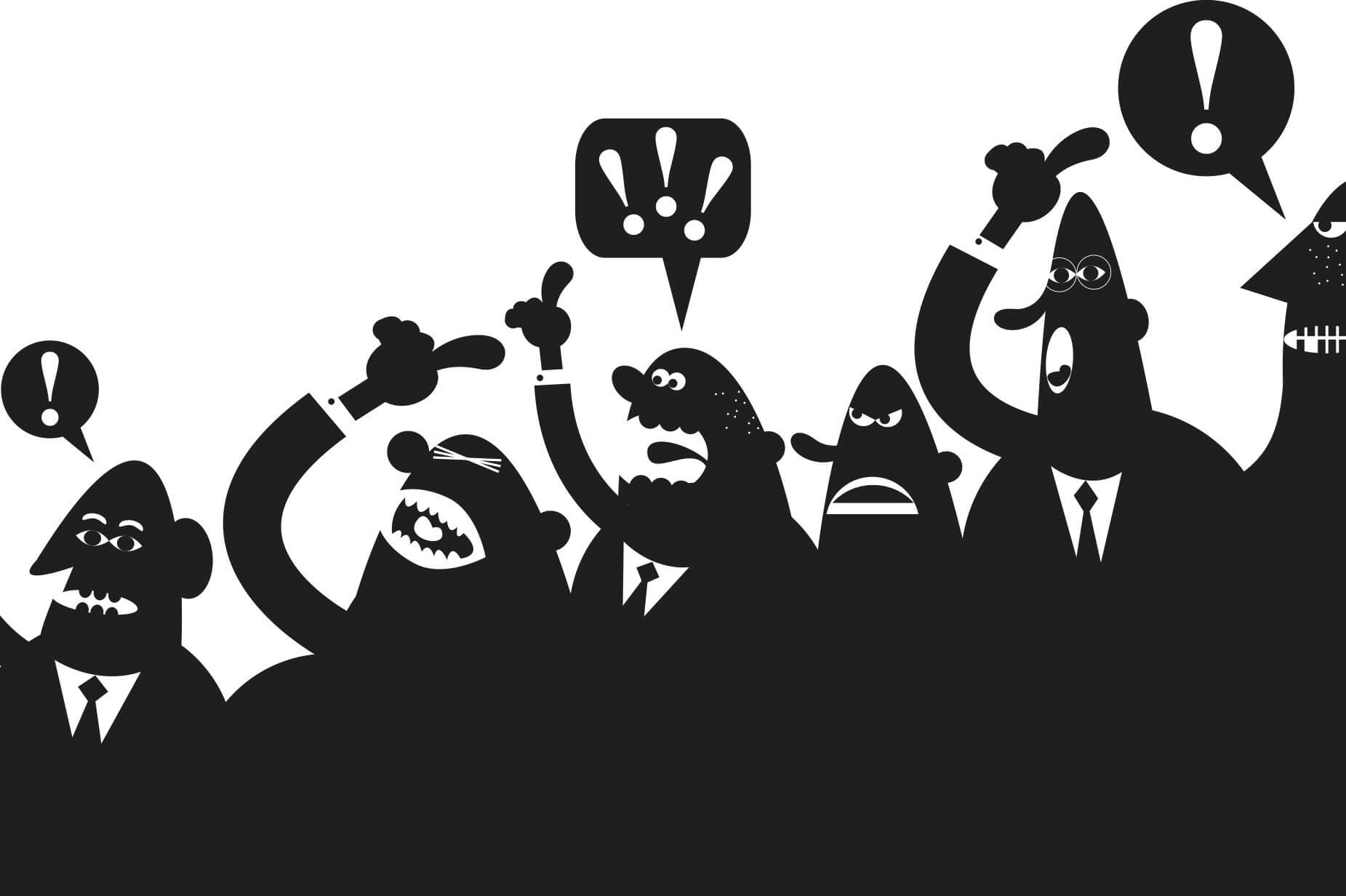
And the battle began. The back and forth of assenting and dissenting “friends” became heated within minutes, and Fiona watched in shock as the argument escalated into something demeaning and completely irrelevant to the statement she’d been trying to make.
It’s the facelessness of sites like Facebook that makes the aggression so easy. We tell ourselves we’re attacking the words not the person. We’re contradicting the concept not the communicator. “It’s not personal!” Except that it is. There is a person invested in the statements we so viciously attack—a person who may have different opinions, but is still human. Able to think for him/herself. Relational. Convicted. Valuable. Vulnerable to cutting words and thinly veiled insults. We scare them into silence or force them into arguments they never sought to enter. (Yes, there are some whose posts are deliberate invitations to “consensual” battle, but most are not.) And with the boundaries of common courtesy and kindness removed by the cyber-nature of modern communication, we let our arrows fly. Wounding words. Harsh criticism. Demeaning condescension. Hate-talk masquerading as dialogue. All on a very public stage. All bullying.
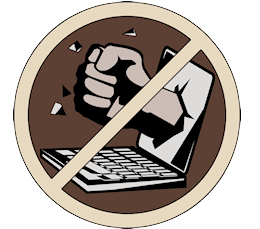
When I tried to mitigate the acrimony of responders during the November elections by asking people to keep their angry diatribes off my page, I was told that I was being unreasonable. How dare I think I could communicate my convictions (even in a measured and non-confrontational way) without allowing people to denigrate, humiliate and badger me? “That’s the nature of social media,” they said. It’s how this new incarnation of “community” works. You’re entitled to your opinions and we’re entitled to hate on you for them.
I thought we’d moved beyond that kind of animosity. I thought adults were expected to treat each other with respect. I thought kindness was chief among social graces. I thought tolerance was the strength we praised as the most enlightened and beneficial of attributes. We want to think that we grow out of our bullying ways as we age. I’m not so sure we do anymore. Certainly not in the relational roller derby of a space like Facebook, where adults (some of whom may be experiencing frustration or anger in their real lives) see social networking sites as convenient places to let off some steam. But at whose cost?
Facebook sometimes makes me feel like a bullied child again. Not allowed to have a voice. Not entitled to a safe place to use it. Afraid of making any statements that are real and true to me because I know someone out there may be lying in wait for the slightest opportunity to pounce. So I shut up. At least on those subjects that seem to encourage violent discourse. I’ve been cowed. Beaten into silence by people who, Facebook tells me, are “friends.”
I don’t recognize this form of friendship. “Back in the day,” when we’d discuss politics, religion and personal issues over a meal, backyard fences or phone lines, I think we were more careful with our words. We still wanted to get our points across, but it was harder to launch hurtful comments when staring into someone’s face or hearing his/her voice on the phone. They were right there, so we couldn’t ignore the consequences of our words. It’s so much easier now. A few ranting clicks on a keyboard…and the satisfaction of seeing our incensed diatribe posted for everyone to view. “Bring it on!” we challenge unseen readers, real-life frustrations sometimes fueling our cyber-zeal. “I’m mad as hell and a good Facebook brawl would do me good!” And we scan the screen for a status update to mercilessly attack. The first one to give in loses. The one with the strongest accusations and vilest insults declares himself the victor. Welcome to modern discourse.
“Don’t post if you don’t want to get slammed,” some have suggested. But isn’t the purpose of social media to communicate? The problem is the INTENT of the communication. That’s what can turn a conversation into bullying. Back to my childhood woes: if those boys had been riding along beside me on a bicycle excursion, there would have been nothing harmful or degrading about the activity. It’s the intent they brought to the bicycle riding that turned it into something damaging and reprehensible. The same is true for words. Yes, we expect responses to what we post on Facebook—that’s the whole point—but the intent of both the posts and the responses is what turns them from dialogue into derision and contempt.
I wonder how much online communication would change if there were a “private comments only” button, thus allowing for conversation while removing the public spotlight that seems to attract the worst perpetrators of Facebook floggings. Or a “selective comments” option that would allow the page’s owner to eliminate abusive remarks before they’re posted to the rest of the world. It would then fall on us to be humble and wise enough to allow for healthy, respectful debates on our pages while weeding out the bullies.
I’m not sure what can be done to quell the bitter cyber-exchanges that injure real people with real feelings in the real world. Except maybe to suggest that we apply to Facebook a few of the basic principles that have worked in other realms:
- Chose words that inform and encourage. Reject words that hurt and belittle.
- Acknowledge the vulnerability (even hidden) of the person to whom you’re writing.
- Respect and honor others.
- Do no harm—no matter how good it may feel at the moment.
- Promote your convictions without shame or venom, but with well measured words.
- Allow others to have their own convictions too. They’re allowed!
- When possible, discuss strong differences face to face or through private messages. Don’t drag your Facebook friends into public fights waged for all to see. Spew your venom, if you must, on your own piece of Facebook real-estate.
- Be civil. Anger, insults and ridicule diminish you, not them.
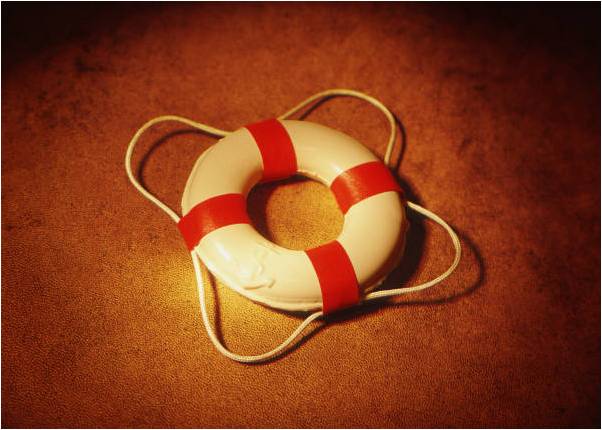
Fiona, whose Superbowl comments led to a fiery exchange, was rescued this morning. One of her friends told the snipers using her page for sport that Fiona is the least judgmental person around and that their responses had nothing to do with the heart of what she posted. She stopped short of saying “Grow up!”—though that may be the best advice cyber-warriors could receive. Be mature. Be sure enough of your convictions that you don’t have to tear someone down in order to feel superior. Be kind. Respect the humanity in others. Demonstrate humility. Grant others the dignity of believing what they believe. Engage in private conversations about topics that are important with people who are important.
Back in the bully-riddled years of my childhood, I must have told my brother about the “mean boys” who chased me on their bicycles. I came out of school one day to find him there, astride his hand-me-down bike, waiting for me. A few paces away, my tormentors looked on, a bit deflated, their harmful intentions foiled by my courageous big brother. I think he said something to them about leaving me alone as he rode slowly by. I straightened my back and attempted a casual “You can’t hurt me now” smile. Not sure if I succeeded. But they never bothered me again.
It all boils down to this: don’t be the boys on bicycles.
Be careful with your words and honorable in your intentions.
In life and on Facebook.
[Don’t forget to click “Like” or to post this article to your social networks. And please use the comment space below to further this discussion.]





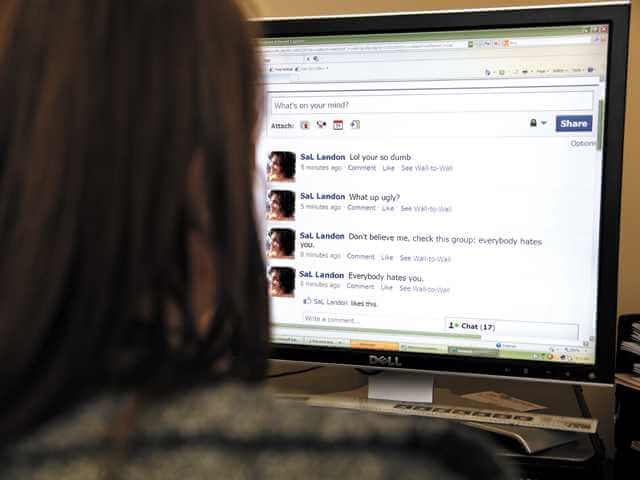




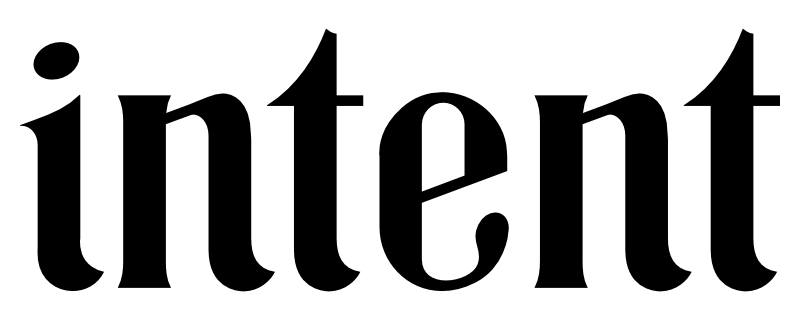


jhurshman
In general, once online forums (whether Facebook, reddit, or blogs) reach a certain size, they begin resembling rooms full of people shouting their own opinions without listening to anyone else. They are extremely poor venues for “conversation” or “discussion”, due to some of the dynamics you highlight.
For that reason, I try (and sometimes fail) to restrain myself from engaging in anything even semi-controversial online. I have composed many Facebook statuses and comments and deleted them before posting.
If you want real conversation or dialogue, broad online forums are not the place for it. Smaller online forums (such as you have here on your blog) or in person are far superior.
The guidelines you express in this post are great, but the truth is that we are not going to be able to get most of our friends (let alone our “friends”) to abide by them.
jhurshman
I also must say that I don’t see the value in stating viewpoints on Facebook and asking people not to respond (at least not if they’re going to disagree). What is accomplished by doing that?
michele
To your second point, Jonathan, I’ve added another paragraph above under the “intent” graphic. Thanks for bringing up this topic.
The added paragraph: I wonder how much online communication would change if there were a “private comments only” button, thus allowing for conversation while removing the public spotlight that seems to attract the worst perpetrators of Facebook floggings. Or a “selective comments” option that would allow the page’s owner to eliminate abusive remarks before they’re posted to the rest of the world. It would then fall on us to be humble and wise enough to allow for healthy, respectful debates on our pages while weeding out the bullies.
jhurshman
Many blogs require comment moderation, which allows the author(s) to vet all comments before they are published.
Even more drastic, I know some prominent blogs (e.g., Daring Fireball, an insightful technology blog, https://daringfireball.net) don’t allow comments. Interaction with the author is by email only.
Both of these have drawbacks, but they do prevent people from riling each other up and going off on tangents.
It would be nice if Facebook offered something like you suggest. Failing that, perhaps you can issue a notice on potentially controversial posts that “off-topic or uncivil comments will be deleted”. Not a perfect solution by any stretch, but maybe an improvement over “don’t comment”.
michele
Exactly what I did in the end, Jonathan. Only to be accused of censorship! 😉 And some of the offensive statements got by me while I was (horrors!) having a life outside of Facebook! I still think the option (not an obligation) to monitor comments before they post would be the best. Until then–I’ll either continue to refrain from stating my opinions on some topics or have to find ways of preventing the abuse from getting to me.
Auntie Lou
An intriguing article, Michèle. It is interesting to observe that very often, ‘Once a bully, always a bully,’ so bullying is not totally confined to the young and brash. For these sorry individuals, cyberspace becomes simply an additional arena.
I have known, and in real life have been the target of, older people who were vicious bullies. The amazing outcome is that I have watched as these folk become some of the most unhappy and miserable I have ever known. To paraphrase a well known quote–“Age does not weary them, but the years condemn.”
shary
Good article and a problem that anyone who wants to share how they really think faces. I have started a couple of closed sites for certain groups of friends. Even in this group I have to monitor what people say. Composing answers to keep two people from becoming enemies is not always easy. I have written a lot of personal messages to keep things civil. I am in a lot of discussions about child abuse in a missionary setting. There is a lot of controversy about abuse. I have removed people from a site. During the election I would hide people who made negative statements about other people.
wnpaul
This may not be what you want to hear, but I think it is true that you need to be fairly thick-skinned to survive in the social media and even blogging world, especially if you do want to express opinions on potentially hot topics.
The difference between the bullies on bicycles after school and the bullies on Facebook is simply this:
– Back then, you HAD to go to school (and home again), and two louts like that could have done you real damage.
– Today, you don’t HAVE TO hang out on FB or write a blog, and the people who post rude comments can only do real damage to the extent that you let them get to you.
I would also say delete comments that don’t meet standards of civil conversation, and tant pis to those who yell censorship. Or as my sons would say, tell them to suck it up. The comment box on your timeline or blog is your space, it’s not Hyde Park Corner; you decide what is acceptable.
And don’t hesitate to defriend or hide “friends” who don’t behave like friends.
michele
I agree with what you wrote, Wolf, as it pertains to OUR response to vicious posts. That’s only our part of the equation, though. We mustn’t let our effective coping mechanisms relieve the perpetrators of their own responsibility in the pain they sow. Their harmful behavior must still be more widely and strongly condemned–whether it stops them or not. We can’t tolerate or hide behind “it is what it is” statements. Those who victimize others, regardless of the medium, are criminals and should be viewed/treated as such.
wnpaul
I guess what I was mostly responding to was your statement about two thirds down your post, and what I also heard you say in earlier comments, “so I shut up and don’t speak my opinion on potentially controversial topics”. That’s where the “coping mechanisms” come in.
Beyond that, once you can cope with the reactions yourself, by all means take on the bullies by announcing in your own comment why you deleted a rude or offensive comment by someone else, or why you de-friended someone who was not behaving as a friend, or even reported someone to FB.
But then you will need those coping mechanisms even more …
mrsdredge
Hurtful words are definitely damaging and it is always wrong to use violent attacking words. I would definitely characterize word-violence as a form of bullying and I think you should expect a certain safety from it when you write and publish opinions.
But it is predictable that someone will disagree – and perhaps be less than pleasant in their disagreement. Anytime we promote our opinion in a public forum where there are places provided for response we risk receiving unfavourable responses, even harsh or passionate ones.
We do have a choice in what to post however, and on facebook this choice is a complicated thing. We must be respectfully mindful of the vast array of ‘friends’ we are speaking to. Face to face, I would never speak in the same way about the same things (especially areas of complex personal experience – like faith, family, politics etc) to … my niece, a former co-worker, the fellow-mom from playgroup, university friends, kids I’ve taught and the senior lady in my Bible Study – never-mind that some of my friends are believers and some are not. When speaking face to face to people we are discerning. We recognise (sometimes) how we can better choose our words and if we should speak at all, respecting the relationship.
I suppose to a certain extent we have a ‘right’ to post whatever we wish in sharing our opinion and I do that sometimes, but is there a better good? In this age and in this culture we have…lost…rejected…forgotten the virtue of prudence, which is an important element of wisdom. I think we ignore prudence, because it is so closely tied to self-control and that is one virtue our culture is not interested in. Wisdom and prudence require self-control and, at times self-denial. I struggle with this.
So many times my heart is rammed full of some passionate sermon or rant and the words are right there and they sound so good in my own ear and they might even have some wit. And even though I know very well there are people on my friend list, (people that have in fact ‘invited’ me or I have ‘invited’ into a certain space of relationship) who will disagree – and maybe not even just disagree on an ‘I am happy to disagree with your opinion’ level, but rather on a deeply personal conviction level – I post it anyway.
Sometimes I even post it defiant of those person’s reactions. There is not love in my heart when I do that. I am ashamed of that. Maybe I am the one who could be accused of bullying – in a passive aggressive way.
Praise God sometimes His Spirit reproaches me and I remove the post. But is the damage – MY damage – done?
The verses that convict me as I consider all of this are the ones which say we are ‘if it is possible –as far as it depends on you, live in peace with everyone’ (Rom 12) and ‘Let us therefore make every effort to do what leads to peace and to mutual edification’(Rom14) and the verse about our words being seasoned with salt and also only speaking words that are full of grace. There is also the Biblical principle of humbly considering ‘the weaker brother’, not causing them to stumble.
I guess it will take time to learn how to best and most wisely use the new venues of communication and relationship now available to us. I must be more care-full and mindful about how I post or write.